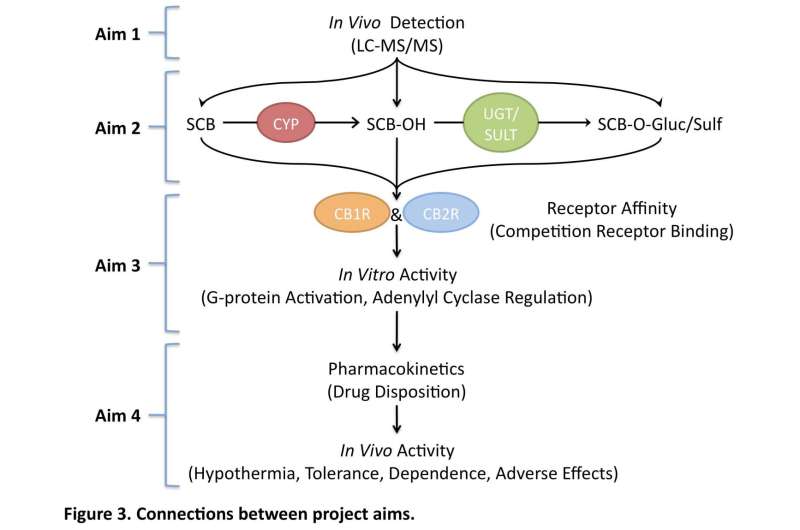Genetic factors may contribute to adverse effects produced by synthetic cannabinoids

Synthetic cannabinoid abuse is a growing problem in the United States, with new versions of the drugs coming on the market every year. New research is examining how the body processes these man-made drugs and the role that genetics might play in their metabolism. The work could reveal genetic factors that increase a person's risk for experiencing the most dangerous effects of these drugs and lead to new treatments to counteract those effects.
Anna Radominska-Pandya, PhD, professor at the University of Arkansas for Medical Sciences, will present new research examining the toxicity and mechanisms of action for synthetic cannabinoids at the American Society for Pharmacology and Experimental Therapeutics annual meeting during the Experimental Biology 2017 meeting, to be held April 22-26 in Chicago.
Drugs in the synthetic cannabinoid class—also known as K2, Spice, synthetic marijuana and many other names—come in more than 150 chemical forms. Although these drugs produce mind-altering effects by interacting with the same receptors responsible for the psychoactive effects of marijuana, synthetic cannabinoids can act on the brain in a much stronger way and have unpredictable effects that sometimes lead to severe injury and death.
"The growing interest in these products, which are inappropriately labeled as 'synthetic marijuana,' is due to rampant availability, ability to elude detection in standard drug tests, low price and the misconception that these products are not toxic," said Radominska-Pandya. "Due to potentially fatal effects of synthetic cannabinoids, it is important to understand the biological activity and toxicity of these novel compounds so that effective treatments and antidotes can be developed."
Radominska-Pandya's research group has been at the forefront of synthetic cannabinoid research since the group was one of the first to identify and study synthetic cannabinoids in the United States a decade ago. They have made important discoveries regarding potential molecular mechanisms responsible for the longer-acting and stronger effects of synthetic cannabinoids compared with marijuana, findings that may lead to potential antidotes for counteracting the drugs' most dangerous effects.
Most recently, Radominska-Pandya and her colleagues identified the role of certain enzymes in the metabolism of various synthetic cannabinoids. Results from analyzing synthetic cannabinoid metabolites led the researchers to hypothesize that genetic variation could produce metabolism defects that may cause severe effects when using the drug. This research could eventually lead to a way to identify people who can't metabolize and excrete synthetic cannabinoids and thus have the highest risk for experiencing severe or even deadly outcomes from its use.
As new compounds that are chemically distinct from earlier drugs continue to appear on the market, the researchers plan to investigate the pharmacological effects of these new synthetic cannabinoids and determine how the body's metabolism may contribute to their toxicology.
"Our overall goal is to understand the molecular and behavioral pharmacology and metabolism of these compounds as a means to identify effective therapeutic strategies against their acute and chronic toxic effects in people," said Radominska-Pandya
More information: Synthetic Cannabinoids: Rapidly Emerging Drugs of Abuse, app.core-apps.com/eb2017/abstr … 2834d471e29e28724a2b

















